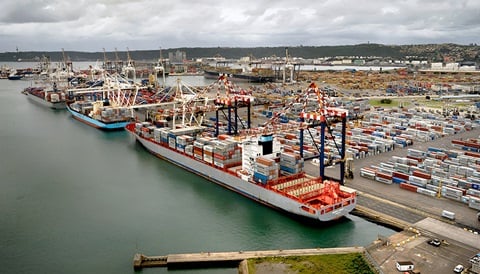Ethiopia issues first investment banking licences
Investment banking will help support the development of capital market

Ethiopia has taken yet another major step towards market reforms by issuing its first investment banking licences to two local banks. The licences were awarded to CBE Capital and Wegagen Capital Investment Bank – subsidiaries of the Commercial Bank of Ethiopia, the country’s largest lender, and Wegagen Bank, respectively.
The new investment banks are expected to support the development of the Ethiopia Securities Exchange (ESX), which launched earlier this year. Investment banks serve as intermediaries between companies seeking to raise capital and investors looking for opportunities. They assist businesses in preparing for public offerings, underwriting securities, and providing advisory services for mergers and acquisitions – activities that help channel capital into the economy, enabling companies to grow and investors to share in the country’s economic expansion.
The ESX aims to list 90 companies over its first decade. So far, only one – Wegagen Bank – has joined the bourse. However, Ethiopian Investment Holdings, which manages a portfolio of state-owned enterprises, is working to bring some of these entities to the market.
The issuance of investment banking licences is part of a broader reform agenda to liberalise Ethiopia’s financial sector. A few months ago, parliament approved long-awaited legislation allowing foreign banks to operate in the country. The new rules permit international lenders to establish subsidiaries, open branches and representative offices, or acquire stakes in existing Ethiopian banks. Foreign ownership of local lenders, however, is capped at 49% to maintain a degree of domestic control. The government has said it plans to issue up to five licences to foreign banks over the next five years, aiming to foster greater competition in financial services.
Besides the financial sector the government of Ethiopia is also liberalising other parts of its economy. In 2021, it awarded a US$850m telecommunications licence to a consortium led by Kenya’s Safaricom, breaking the state’s monopoly in that industry. More recently, it allowed foreign investors to enter the retail sector.
Last year, the central bank started floating the local currency, shifting to a market-determined exchange rate to ease foreign currency shortages and unlock international financing. These efforts have been backed by US$3.4bn in funding from the International Monetary Fund, approved in July 2024.
References
‘Ethiopia opens up retail sector to foreigners in economic liberalization move’, Xinhua, 18 April 2024
‘Ethiopia passes law to open banking to foreign competition’, Reuters, 17 December 2024
‘Ethiopia to allow foreign banks to operate’, Semafor, 19 December 2024
‘Ethiopia opens banking sector to foreign investment’, Agence France-Presse, 17 December 2024
‘Ethiopia launches stock exchange in fresh step to liberalise economy’, Reuters, 10 January 2025
‘Ethiopia’s new stock exchange targets 90 listings in first decade’, African Business, 27 February 2025
‘Ethiopia issues first investment banking licenses’, Reuters, 21 March 2025
‘X post’, Ethiopian Capital Market Authority, 21 March 2025







